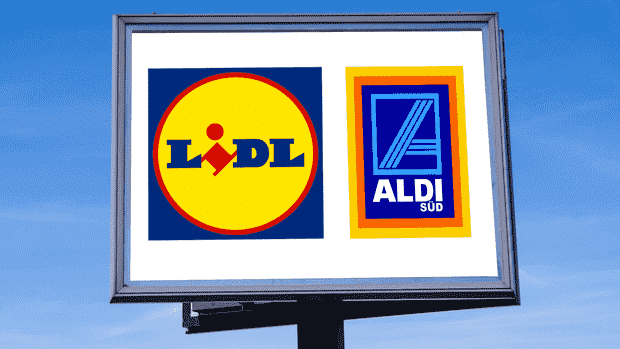The subsidiary of the Schwarz Group collects 10 million tons of recyclable materials this year.
(Photo: PreZero)
Dusseldorf Anyone who thinks that Lidl’s mother Schwarz Group is simply Europe’s largest retail company is wrong. This year alone, it will have collected around ten million tonnes of recyclable materials, making it one of the five largest waste disposal companies in Europe. The Schwarz subsidiary Prezero operates a dual system with five of its own recycling systems and seven sorting systems and is active in nine countries.
And this business will grow massively again in the near future. This week the EU Commission gave Schwarz permission to take over Ferrovial’s waste disposal business in Spain and Portugal.
The number of Prezero employees will grow from 13,000 to 29,000. In addition to the previous turnover of around two billion euros in the waste disposal business, more than one billion euros is added. Before that, Prezero had already taken over a large part of the Suez waste disposal company.
But what makes a retailer buy up an empire of garbage companies? Thomas Kyriakis, Chairman of the Board of Prezero, has a clear reason for this: “We expect valuable synergies from this for the further development of the circular economy in Europe.”
Top jobs of the day
Find the best jobs now and
be notified by email.
The family company Schwarz was the first German retailer to discover the potential of creating a closed loop system for the packaging of its goods. Instead of waiting for politicians to set targets for recycling quotas, which are then difficult to meet, the retail group has proactively taken the initiative.
Since the middle of the year, all the PET non-returnable returnable bottles of the own brands that are sold by Lidl and its sister company Kaufland have been made from 100 percent recycled plastic. The company can only guarantee this because it is continuously supplied with pure PET plastic via its own waste sorting systems.
The drugstore chain dm collects empty shampoo bottles in the shops
The company is thus improving both its cash register and its ecological balance sheet. Because if Schwarz were to manufacture these bottles from 100 percent new material, it would have to buy around 48,000 tonnes of new plastic and emit 79,000 tonnes more of CO2 equivalents.
Industry experts assume that the other major retailers will not be able to avoid getting involved in the circular economy. The drugstore chain dm, for example, has started collecting used shampoo bottles in stores on a trial basis.
Aldi has already made further progress and has already set the course for a closed material cycle. Aldi Süd and Aldi Nord have entered into a strategic partnership with the disposal company Interseroh +. According to information from the Handelsblatt, this should also be backed by a silent participation. Aldi does not comment on this.
Aldi itself speaks of an active entry into the circular economy. “This is a strategically important step for us,” explains Kashif Ansari, Chief Strategy Officer at Aldi Nord. The discounter sees itself in a “control function” between retailers, recyclers and the manufacturers of packaging and products.
“Interseroh + offers a new concept for securing secondary raw material requirements and for closing cycles,” says Alexander Markov, Managing Director Logistics & Services at Aldi Süd. The goal of the two discounters: By the end of 2025, all plastic packaging for own brands, i.e. not just PET bottles, should consist of an average of at least 30 percent recycled materials.
This means that retailers are also putting pressure on the consumer goods industry to use packaging made from recycled material on an even larger scale. At the end of September, for example, Pepsico announced that all plastic bottles in Germany are made from 100 percent recycled material – 100 days earlier than originally planned. And this year Coca-Cola will achieve a share of 70 percent of recycled material in PET bottles and thus also exceed the target it has set itself. Originally planned was 50 percent by 2023.
More: Lucrative, fast-growing – sustainable: Aldi’s multi-billion dollar plans in the garbage market.

